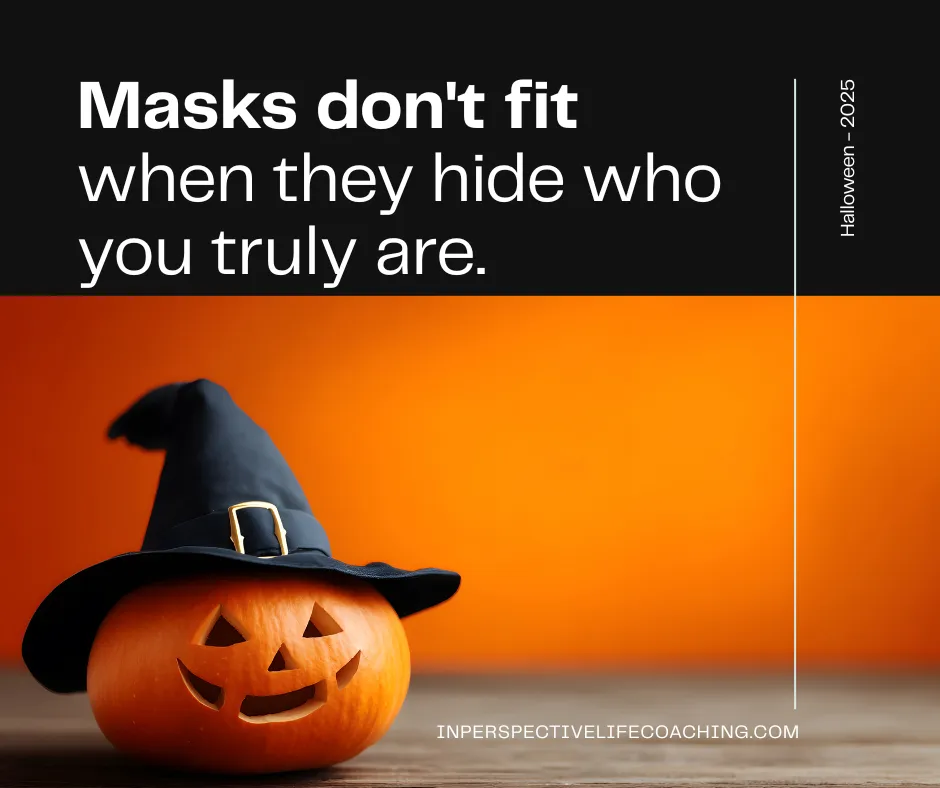
The Masks That Don’t Fit
Every October, stores overflow with masks—sparkly ones, scary ones, silly ones.
We buy them for fun, but let’s be honest: some of us wear masks all year long.
Not the kind with glitter or fangs, but the ones that say “I’m fine.”
The ones that smile when our hearts are aching.
The ones that hide exhaustion, fear, or loneliness behind practiced composure.
Halloween just makes the metaphor a little more obvious.
The Roles We’ve Outgrown
Midlife has a way of exposing the masks that no longer fit. The mask of the fixer, always holding everyone else together. The mask of the strong one, never showing need. The mask of the peacekeeper, smoothing every rough edge while swallowing your truth.
I wore all of them at some point.
And like any costume worn too long, they became uncomfortable—itchy, heavy, suffocating.
At first, I thought the problem was me. I just needed to adjust, smile wider, hold it together better. But the truth was simpler: the mask no longer matched the woman underneath.
Why We Wear Them
Masks serve a purpose.
They help us survive seasons when vulnerability feels unsafe. They help us navigate grief, family expectations, or workplaces that reward perfection.
But what begins as protection can quietly become confinement.
Over time, the mask we once used to feel safe becomes a barrier that keeps others from truly seeing us—and keeps us from seeing ourselves.
When I finally started removing mine, piece by piece, I was surprised by what I found. Not weakness. Not chaos. But truth. And underneath that truth was freedom.
The Fear of Being Seen
Taking off a mask can feel terrifying. It means risking misunderstanding. It means saying, “This is who I really am,” and trusting that it’s enough.
When I began to show up more authentically—in my relationships, in my work, even online—I noticed something powerful: the people who truly resonated with me didn’t need the mask. They exhaled when I did.
That’s the beautiful thing about authenticity—it gives others permission to do the same.
The Coaching Perspective
In coaching, we often talk about alignment—living in a way that your values, words, and actions match. Masks create misalignment. They protect us from rejection, but they also keep us disconnected from joy.
Here’s a question I often ask clients (and myself):
“Where in my life am I still performing instead of being?”
It’s not about judgment—it’s about awareness. Once you notice where a mask feels tight, you can loosen it.
The Wisdom Beneath the Mask
Every mask we’ve worn has taught us something.
The caretaker mask showed you how deeply you can love.
The perfectionist mask taught you about high standards and responsibility.
The strong one mask revealed your resilience.
Now, the wisdom is in knowing when to set them down.
You can keep the lessons and let go of the disguise.
